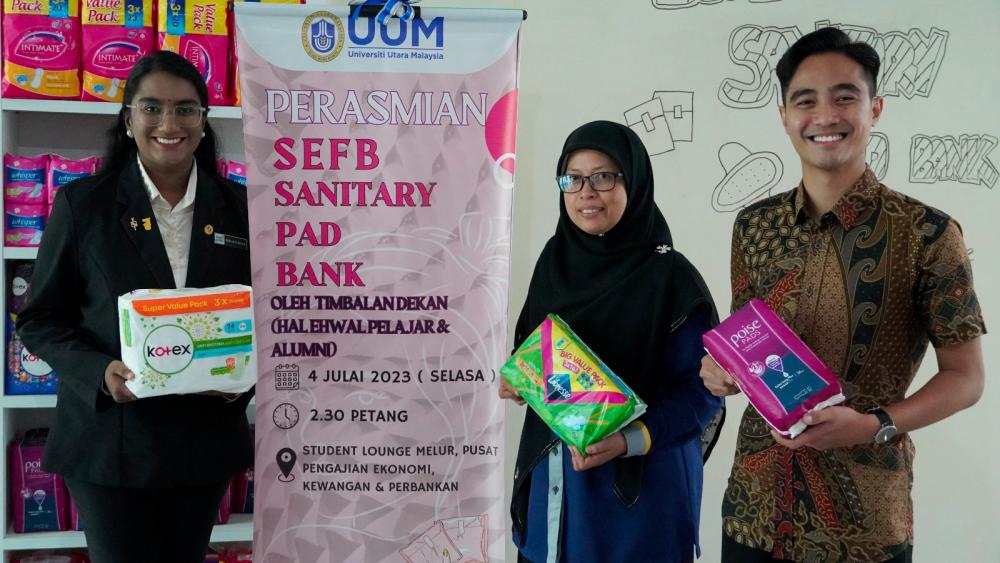PETALING JAYA: In an inspiring move to support student well-being and ensure access to menstrual hygiene products, a team of students have taken the initiative to alleviate period poverty at the Universiti Utara Malaysia (UUM) Kedah School of Economics, Finance and Banking.
Third-year student Khausalya Chandran initiated the free sanitary programme, named “SEFB sanitary pad bank”.
“As most are aware, many higher education institutions are situated in rural areas. UUM falls in this category, and being located in the northern region, we face challenges related to period poverty.
“This issue arises primarily as we have insufficient sanitary pads for sale at nearby convenience stores due to the high number of female students at our university.
“Also, some of our students face financial constraints and struggle to afford these products, especially considering the higher prices charged by the stores,” she said.
Khausalya, who is also a student council member, recognised the need for accessible menstrual products on campus and decided to tackle the issue head-on by forming a team of 15 people, including eight males.
However, starting the free sanitary pad bank was not without its challenges.
“Our team managed to convince UUM’s management of the importance and objective of the project, which was initially an uphill battle,” said Khausalya.
“But with perseverance and determination, the team successfully conveyed the significance of the initiative and received the necessary approval.”
She added that the pads are conveniently placed at the student lounge, allowing easy access whenever needed. The facility also aims to break the stigma surrounding menstrual hygiene by promoting a supportive environment.
“To ensure the project operates on a zero budget, meaning no funds were sought from students or the team itself, we relied solely on sponsorship from external entities.
“As of now, some 1,000 sanitary pads have been distributed to students, with an average of 60 pads being used per day.”
Khausalya said the high take-up among students highlighted the pressing need for accessible menstrual products, particularly since the cost of the pads continues to rise, making it difficult for B40 students to afford them.
She said the supply of pads is stable, and the team is actively working on securing future supplies from various industries and entities.
“The sanitary pads are even used by male students suffering from urinary issues. This reflects our inclusive approach.”
Khausalya said to ensure a steady supply of sanitary pads, a welfare audit team was established to regularly review supply and monitor student usage.
A male volunteer, Vikesh Balan, said he became a part of the project when its goal ignited his passion.
“My motivation stems from a strong belief that every woman deserves access to menstrual hygiene products,” he said.
“I am committed to combating societal stigma surrounding menstrual hygiene and ensuring that all females have access to necessary supply,” said Vikesh, who is also the project deputy director.
“The initiative to address period poverty has received positive feedback from the beneficiaries, who are grateful for the assistance provided to them,” he added.
Vikesh emphasised that apart from making a significant impact on the university community, the initiative also positively influenced the understanding and importance of menstrual hygiene issues among students.









